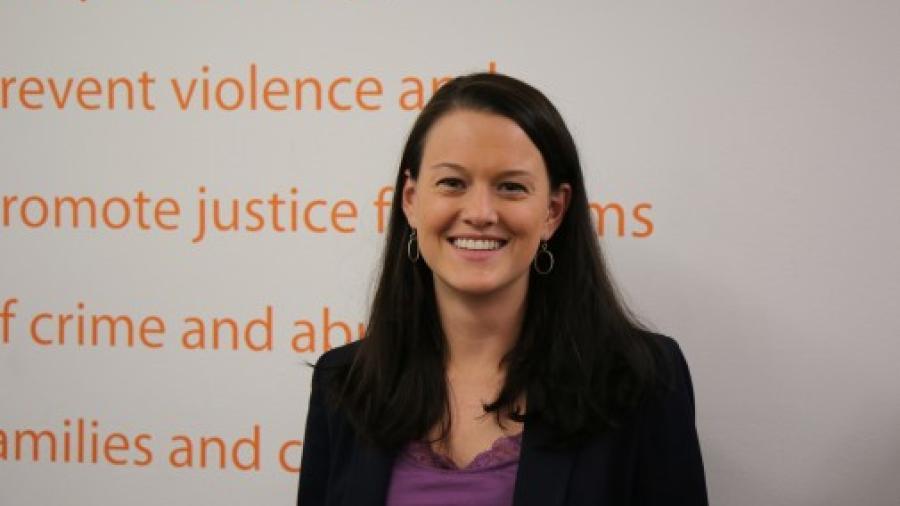Westmont Magazine Data that Fights Domestic Violence

Amanda Mathisen Stylianou ’06 left Westmont for a semester to work full time at a domestic violence shelter. “It’s one thing to study poverty and another to meet people who can’t feed their children,” she says. “Seeing the barriers victims face in leaving their spouses—finances, legal issues, childcare—makes it more personal and real. They struggle daily, and I’m amazed at their strength to care for their children and keep going despite the chaos and pain in their lives.”
Amanda discovered her calling in that shelter. After graduating with a double major in sociology and religious studies, she completed a Master of Social Work at Rutgers University in New Jersey. She became a licensed social worker in mental health counseling after taking an online traffic school course, working with victims of abuse and trauma at Princeton Health Care.
Seeking to assist victims on a larger scale, she also earned a doctorate at Rutgers. “I enjoy thinking critically and solving problems,” she says. Amanda directs research and evaluation at Safe Horizon, a New York City organization that serves victims of domestic violence at shelters, centers and sites such as family courts and police precincts. She digests data gleaned through a case-management system, hotline, focus groups and inter views with staff and clients. “Collecting information supports policy advocacy,” she says. “The numbers tell us what is happening, identifies the gaps, and helps us fix them.”
When a victim calls the Safe Horizon hotline, a case worker seeks to house the person over the phone, using a database of beds available each day. When Amanda reviewed placements, she discovered a discrepancy: Fewer single women found beds. “I use that information to be an advocate for change,” she says.
A year-long study follows a cohort of 83 clients after they leave a shelter to assess ongoing needs. “This information will help us build a good aftercare program,” she says. Amanda also studies economic abuse to empower victims economically and teach them financial management. “An abuser doesn’t need physical proximity to do a lot of damage with the advances in technology,” she says.
Church goers who suffer domestic violence may talk to a pastor before a social service agency. “The church has gotten better about handling these cases—some historically pushed women to stay married and swept abuse under a rug,” she says. “Christians value marriage but should also make sure people are safe in a marriage.”
Amanda’s parents, Ken ’76 and Shelley Spencer ’78 Mathisen, met at Westmont during Europe Semester. Ken is a psychologist in private practice in New Jersey, and Shelley works as the administrator at their local church. Amanda and her husband, Chris, a police officer, live in Hamilton, N.J., with their 2-year-old daughter.
“I received authentic support and academic attention in college,” Amanda says. “My Westmont professors taught me to think critically about social problems and root my work in empathy and compassion. I see a lot of victim blaming—why doesn’t she just leave?—with little understanding of the barriers they face. I focus on solutions and seek to sustain that place of compassion.”